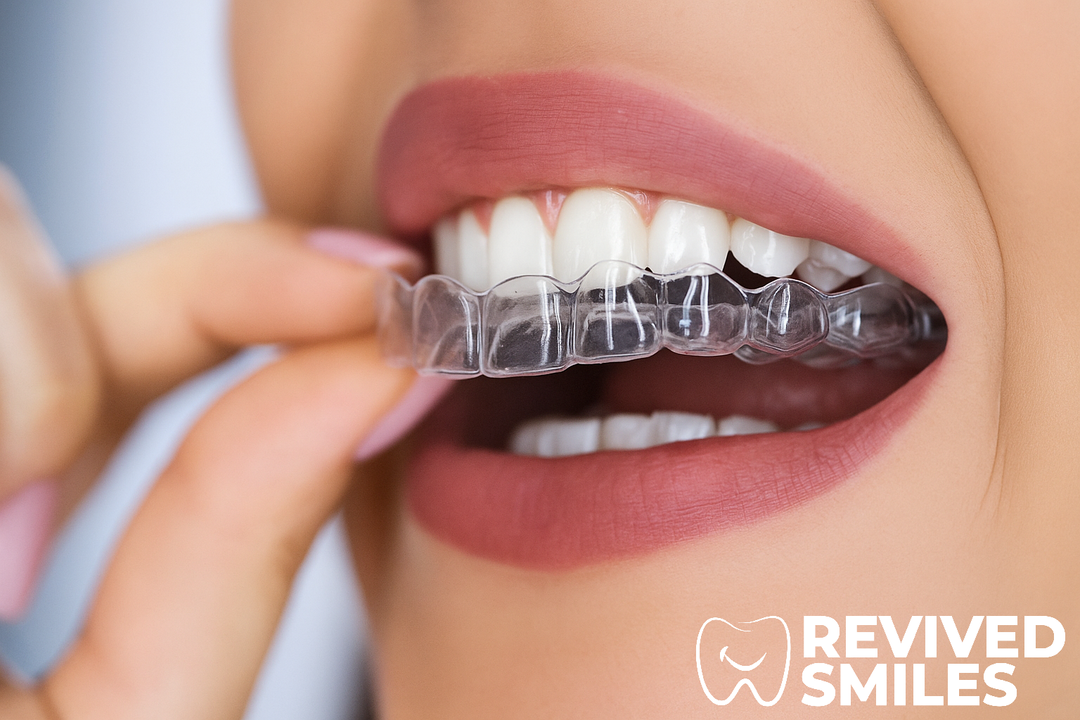Top Tips for Eating with New Dentures: A Guide for Comfortable Dining

Dentures are prosthetic devices made to replace missing teeth and help restore both tooth function and the appearance of your smile. Though dentures offer many benefits, getting used to life with new dentures poses some initial challenges, especially surrounding eating.
After wearing new dentures, a lot of people find that previously simple tasks like biting into an apple or cutting meat become difficult. Adjusting to eating with dentures brings frustrations for many, even discouragement when experiencing discomfort, trouble chewing correctly, or anxiety about dentures becoming loose mid-meal. However, it would help if you understood that these challenges are surmountable and not permanent.
This article gives practical tips to make eating with new dentures less difficult and more enjoyable. By following this advice, you’ll be able to acclimate quicker to your dentures and soon regain confidence in relishing your favored foods with ease.
Understanding Your New Dentures
Before getting into tips for eating, it's worth going over some basics about these new dental appliances. Dentures come as either full dentures or partial dentures. Full dentures replace all teeth in the upper or lower jaw—or both. Partial dentures fill in gaps where teeth are missing while using your remaining natural teeth as support.
Either way, expect an adjustment period over the first few weeks to months after getting dentures. During this initial phase, your mouth gets used to having dentures in. More saliva production, minor mouth irritation, and a sensation of fullness are common.
Eating with new dentures can be tricky at first, too. You may have trouble judging if foods are too hot. Biting and chewing efficiently can be hard. And you might worry about the dentures becoming loose or falling out when you eat. Just remember that these issues are temporary.
You'll become more comfortable with your dentures over time as you get used to them in your mouth. The important thing is to be patient with yourself as you adjust to the feeling of wearing dentures. Eventually, it'll feel more natural.
Can You Eat with Dentures?
Many new denture wearers worry they’ll have to avoid certain foods forever or that dentures prevent proper chewing. However, well-fitted dentures should vastly improve eating ability compared to missing natural teeth. Dentures facilitate biting, chewing, and swallowing just like your natural teeth once did.
With practice eating, you can introduce almost any food back into your diet. However, some caution is still required to avoid denture damage or choking. Adjusting to dentures’ feel in your mouth and building experience with different food textures are key first steps.
How to Eat with Dentures: General Tips
- Start with soft, moist foods cut into small pieces – Soft foods like scrambled eggs and mashed potatoes minimize pressure on gums as you develop your new biting motions.
- Chew slowly and thoroughly using both sides of your mouth – Don’t overwhelm your new dentures by chomping vigorously. Distribute each bite to all denture surfaces.
- Avoid very hard, crunchy, chewy, sticky foods initially – Foods like raw carrots, bagels, caramel can loosen dentures and require more forceful biting than you may be used to.
- Drink water frequently during meals – Water helps moisten foods and rinse any particles from getting under and irritating dentures.
What You Can Eat with New Dentures
While adjusting to dentures, stick to a soft food diet, including:
- Broths and blended soups
- Mashed potatoes or cooked cereals
- Puddings and custards
- Soft-cooked vegetables like steamed carrots
As your comfort improves, gradually mix in items requiring more pressure, like soft meats and baked potatoes. Use caution when advancing to foods like:
- Tough meats with grisly textures
- Crunchy raw veggies and fruits
- Very sticky foods like caramel or gum
Tips for Specific Food Types
Fruits & Vegetables – Cook produce to soften it or cut it into small pieces you can fully crush with your tongue against the roof of your mouth.
Meat & Protein – Ground meats are the easiest starting out. Introduce tender cuts of beef or soft meat like fish. Pre-cut meat into bite-size pieces so less chewing is required.
Bread & Grains – At first, stick to soft bread without hard crusts that could irritate gum tissue. Items like pasta and rice are good transitional foods before reintroducing varieties like crusty baguettes.
Temperature – Extremes of temperature can irritate sensitive gum tissue. Allow hot foods to cool slightly and let ice cream soften before consuming.
Maintaining Oral Hygiene
Practicing good oral hygiene is vital for healthy gums and keeping dentures functioning properly. Food particles easily get lodged under dentures, which can damage gums if not removed. Rinse dentures over a filled sink after every meal, even when out, to dislodge debris. Brush dentures daily with a nonabrasive cleanser and soak them when not worn. See your denturist at least yearly to check fit and realign if needed.
Food particles easily get lodged under dentures, which can damage gums if not removed. Some denture wearers also explore natural remedies like CBD Oil to help with gum discomfort and inflammation, though maintaining proper oral hygiene remains essential. Rinse dentures over a filled sink after every meal, even when out, to dislodge debris.
Conclusion
Adjusting to eating with new dentures brings unique challenges, but it becomes more comfortable with time and practice. Be patient with yourself by starting soft and advancing at your own pace. Don’t get discouraged if you experience discomfort or need to remove dentures temporarily – these are normal parts of the adaptation process.
Focus on proper oral care habits to keep irritation minimized. With daily wear, you'll get accustomed to your new bite and ability to chew various foods. Work closely with your denturist to address any persistent issues with fit or chewing efficiency. As the adjustment period passes, you’ll regain confidence eating a wide variety of delicious and nutritious foods.
Though the initial transition can be difficult, millions of denture wearers eat comfortably every day. Stick to the diet tips covered to ease the process. Before long, your dentures will feel natural, allowing you to eat all your favorites without a second thought again. Stay motivated, knowing you’ll soon be able to enjoy all the pleasures of tasty, healthy meals you may have missed.





I’ve had my dentures 3 weeks. They are very very comfortable. I drink a lot of tea so don’t put them in until I stop, around noon. My problem is eating. Sometimes it goes well, but sometimes slide all over the place and if I eat anything like a cucumber they almost jump out. Is something wrong? I use Fixodent adhesive should I try a strip? The fit is good, I think, sometimes if I put them in late, I have to fight to get them out. No pain.
Can these dentures be produce in the same color of my teeth. My teeth are 3
Leave a comment